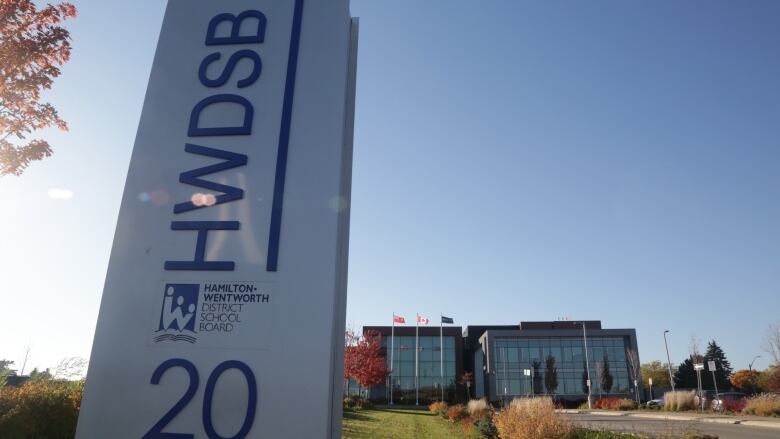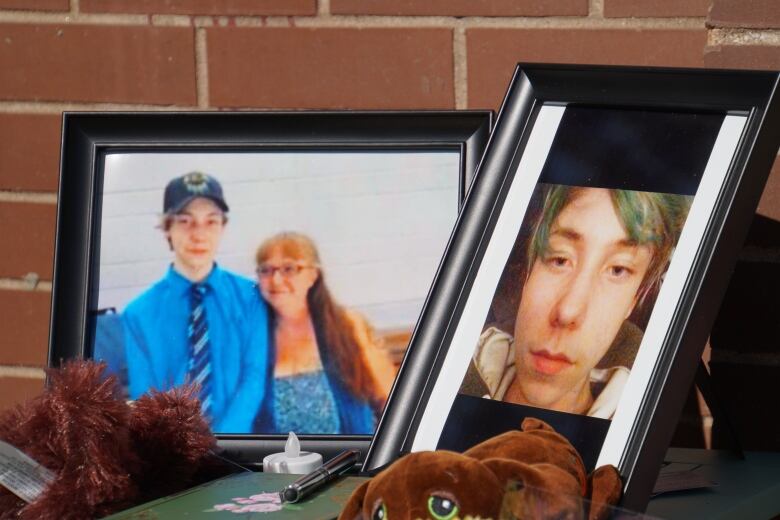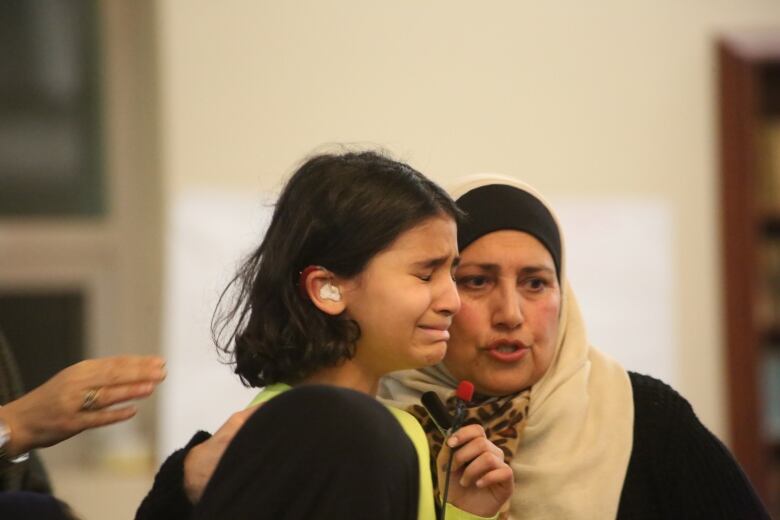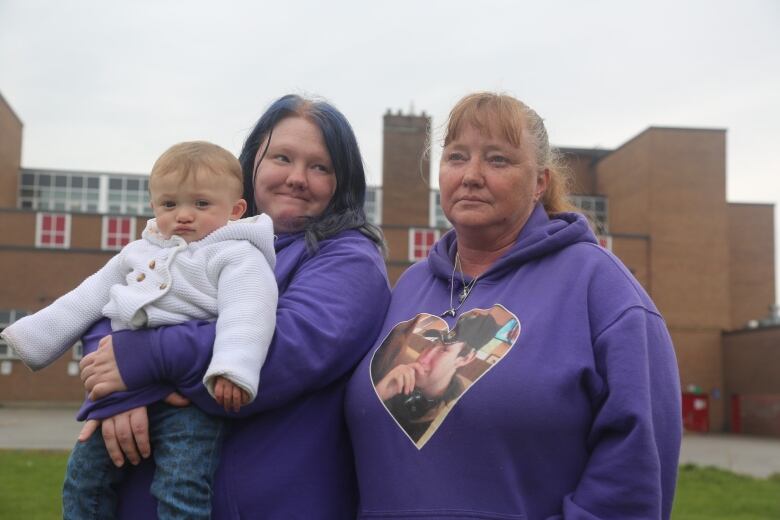Hamilton schools have bullying problem and 'culture of fear,' says report after teen's death
The panel hopes schools across the province and country can learn from the report

The full report, set up after the killing of a 14-year-old in Hamilton, shows bullying is a pervasive problem throughout the city's public schools and went unchecked many times at the public school board.
The Safe Schools Review panel spoke about the new report on Monday with Manny Figueiredo, the director of Hamilton-Wentworth District School Board (HWDSB).
The panel and thereport beganon Nov. 12, 2019 after Devan Selvey was stabbed to death behind Sir Winston Churchill Secondary School on Oct. 7., 2019.
"It really was his loss that began this continuing conversation about our collective responsibility to respond to bullying," said Dr. Jean Clinton, one member of the three-person panel.
The panel hopes schools across the province and country can learn from the report.

The report included dozens of sessions with various groups in the school community, and an online survey for students, parents and caregivers. More than 10,000 people were involved in the process. There was also a literature review and consultation with bullying prevention experts.
The review does acknowledge "many HWDSB schools and staff are doing commendable work" and recognizes the board as leading changes to how educators approach bullying, but also states "there is much to build on."
While roughly 85 per cent of students surveyed said they felt safe at school most or all of the time before the COVID-19 pandemic, almost 60 per cent said they had been victims of bullying. While those stats are much higher than the rest of the province, the experts noted HWDSB has the most recent data on bullying and they would expect other schools to have similar results.
Bullying was severe and went unpunished, report says
The report states many students felt reporting bullying didn't help. Some of the bullying caused students to consider suicide.
Parents, guardians and caregivers also said they feared for their children's safety, recalling a lack of information in some cases, and incidents with weapons in others.
"My son had a gun pulled on him and his shoes were stolen. In a scheduled meeting with the principal and the superintendent, the superintendent didn't even show up. The police liaison complained that they had too many schools to cover and they were called to three other schools in the space of time that our meeting was held," read a quote attributed to a parent.

Bullying among students mainly took place when students were unsupervised, according to the panel.
The panel says there was also bullying rooted in racism, homophobia, transphobia and ableism both from educators and students.
"Students talked about being sworn at, called names and, in some cases, experiencing transphobia from teachers. As was the case when students were bullied by classmates, students who were bullied by teachers shared that they were not believed and that the teachers did not face any repercussions for their bullying behaviour," read the report.
The report states there's a desire from everyone involved to turn the "culture of fear," which prevents people from speaking out, into a culture of caring.
Educators who participated in the report said they didn't always know how to respond to bullying concerns and what their responsibility was.
"There are inconsistent practices and processes for reporting and responding," Clinton said. "Phrases like 'a lack of action, poor follow-through' were used very frequently during the consultations. We heard and felt people's frustrations."
Still, the panel found people at all levels of the board wanted to find a way to improve school culture.
HWDSB to announce implementation plan
The report offered 11 overarching recommendations with specific action items to make each a reality.
-
Increase student ownership and seek out and listen to student perspectives.
-
Involve parents, guardians and caregivers in bullying prevention and response in meaningful ways.
-
Develop multi-tiered supports and programming.
-
Support schools so they can establish their own bullying prevention and intervention plans.
-
Examine special education practices from a student-centred learning perspective.
-
Review policies and procedures from equity, anti-racism and anti-oppression perspectives.
-
Ensure policies and procedures are followed consistently.
-
Set the foundation for a culture of caring.
-
Strengthen the leadership skills needed for culture change.
-
Work with a wide range of community partners.
-
Ask the Ministry of Education for support.
Some of the specific action items include creating a student ombudsperson position to hear instances of bullying, creating a lead position within the board tofocus on system-level efforts, and a community-led, independent table to oversee the implementation of recommendations.
Some of the more immediate action items included collecting and sharing data on bullying every six months, addressing areas with no or low supervision, and forming a commitment statement specific to bullying prevention.
The review panel proposes returning at six-month intervals for the first year or so to monitor the board's progress.
Figueiredo said HWDSB trustees are meeting Monday evening and are expected to receive the report and its recommendations. From there, he said board staff will return in the spring with an implementation plan. He also said the COVID-19 pandemic will not stop HWDSB from implementing the recommendations.
Devan Selvey's mother impressed by report
Shari-Ann Selvey says she was impressed by the "heartbreaking"report and its all-encompassing approach.
"They did an excellent job, the panel.They really put their heart and soul into it," she said in an emotional interview onMonday.
"The most important part of that is they listened to what people were saying."
But Selvey saysshe wishes the board acted sooner.

"Bullying has been around for years, so I don't understand why it took the death of Devan to make things come to light. But it had to come and it did and it looks great moving forward and hopefully it saves a lot of children ... " she said.
"I'm glad Devan's name is attached to it because through him, other students are getting a voice."
And she hopes other school boards take action.
"I just hope it's all followed through with, not just for Ontario, but for Canada."
With files from Dan Taekema












_(720p).jpg)


 OFFICIAL HD MUSIC VIDEO.jpg)
.jpg)



























































































